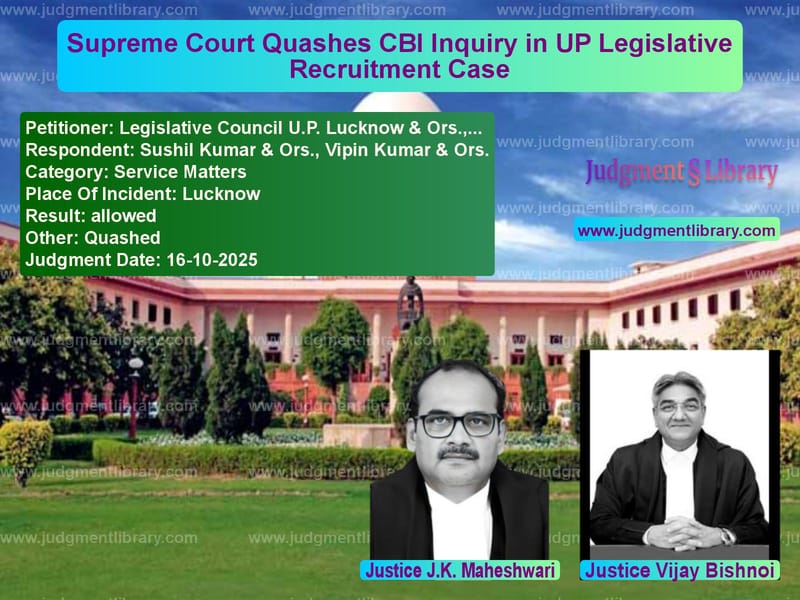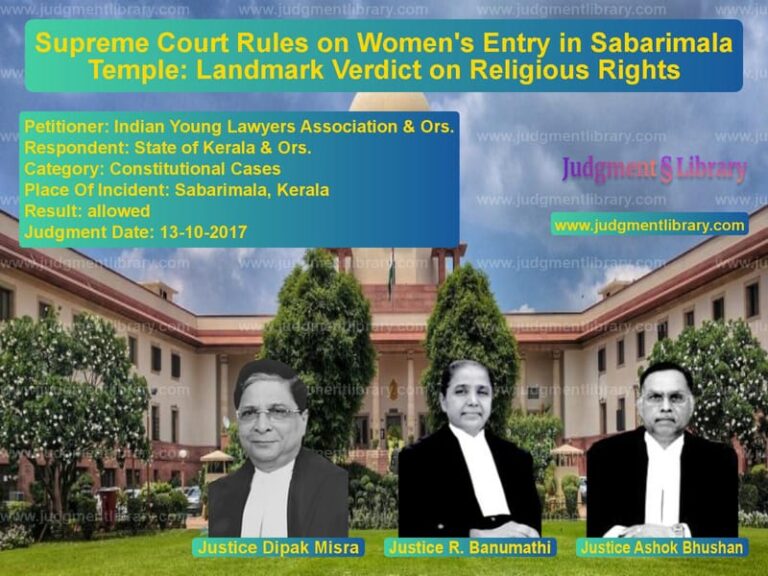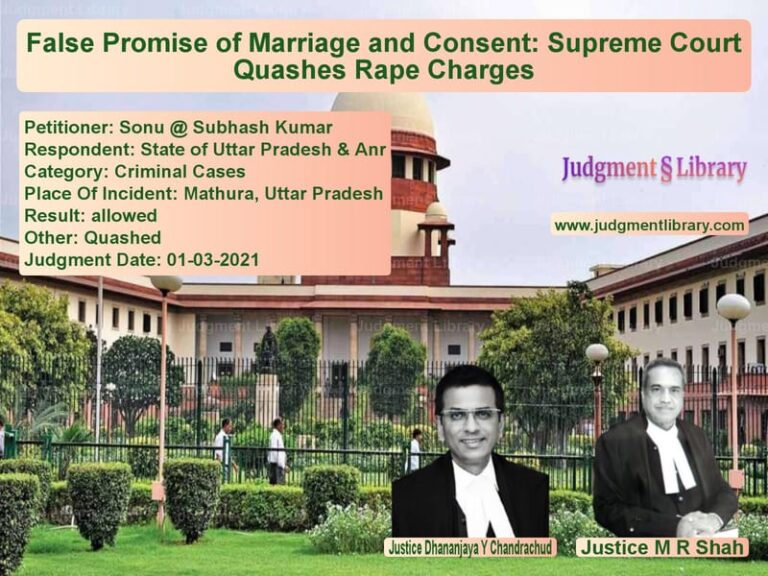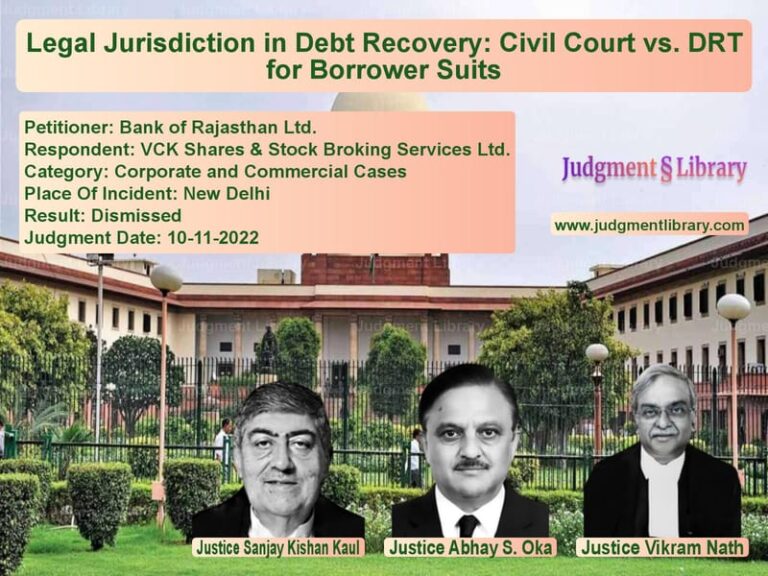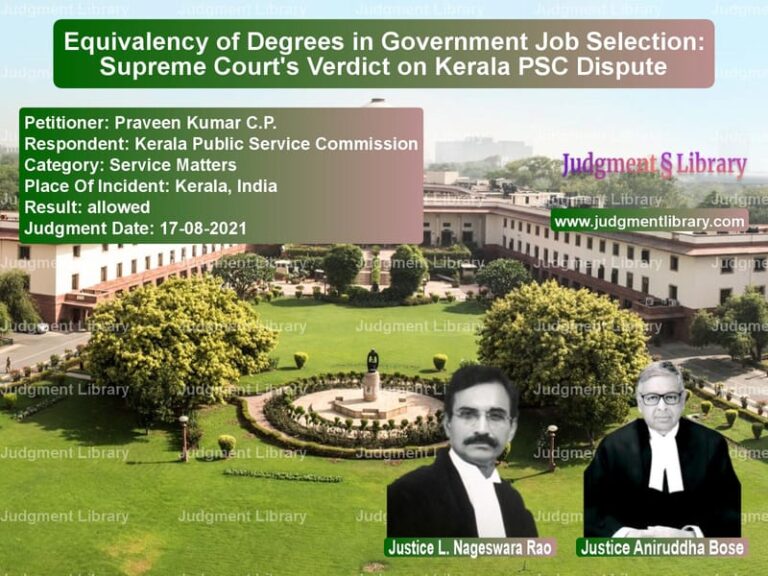Supreme Court Quashes CBI Inquiry in UP Legislative Recruitment Case
In a significant ruling on October 16, 2025, the Supreme Court of India set aside a directive from the Allahabad High Court that had ordered a Central Bureau of Investigation (CBI) preliminary enquiry into the recruitment process for staff in the Uttar Pradesh Legislative Council and Assembly Secretariats. The case, which originated in Lucknow, revolved around allegations of unfairness and favoritism in selections conducted via an advertisement from 2020. The apex court’s decision underscores the high threshold required for judiciary to direct a CBI probe, emphasizing that such a move is an extraordinary measure to be used sparingly and not based on mere doubts or assumptions.
The Genesis of the Legal Battle
The controversy began when unsuccessful candidates, Sushil Kumar and others, challenged the selection process for various posts under the Secretariat of the Uttar Pradesh Legislative Council. They filed a writ petition (Writ-A No. 36/2021) contending that the process, notified through Advertisement No. 1/2020 dated September 17, 2020, and a supplementary advertisement, was unfair, unjust, arbitrary, and collusive. The petitioners did not seek a CBI investigation; instead, their primary prayers were to quash the entire selection process, command the authorities not to proceed with it, and direct a fresh selection process in accordance with the relevant service rules. They also sought regularization of their contractual employment.
A learned Single Judge of the High Court, in an order dated April 12, 2023, disposed of the petition. Relying on a Supreme Court judgment, the judge directed that future recruitments for Class-III posts in the Assembly and Council should be handled by the Uttar Pradesh Subordinate Services Selection Commission, a specialized statutory body, rather than a private agency or selection committee. The petitioners were allowed to continue working on a contractual basis until regular candidates were selected. A review petition against this order was dismissed, leading the petitioners to file a special appeal.
Meanwhile, another writ petition (Writ-A No. 140/2022) was filed by Vipin Kumar and others, challenging the selection for the post of Assistant Review Officer in the Uttar Pradesh Legislative Assembly Secretariat. This petition also alleged manipulation and favoritism and sought a high-level enquiry, though not specifically a CBI probe. The High Court clubbed this petition with the special appeal.
The High Court’s Suo Motu Action and CBI Direction
In a surprising turn, a Division Bench of the High Court, vide its order dated September 18, 2023, took suo motu cognizance and converted the matter into a Public Interest Litigation (PIL). It then directed the CBI to conduct a preliminary enquiry and submit a report within six weeks. The Bench stated that it had doubts about the process of identifying the external agency hired to conduct the examinations, noting some inexplicable details in the company master data. It framed questions in public interest, leading to the CBI referral. A review petition against this order was dismissed on October 3, 2023.
Arguments Before the Supreme Court
The State of Uttar Pradesh and the Legislative Council appealed to the Supreme Court against the High Court’s orders. The appellants argued that the Division Bench exceeded its jurisdiction by converting a special appeal into a suo motu PIL and ordering a CBI enquiry without any specific prayer from the parties. They contended that there were no sufficient pleadings or material to warrant such a drastic step and that the principles of natural justice were violated as they were not given an adequate opportunity. Mr. V. Giri, learned senior counsel representing the State, and Mr. Sharan Thakur, learned senior counsel for the Legislative Council, submitted that the direction as issued by the High Court is not in accordance with law.
On the other hand, the original writ petitioners, represented by their counsel, supported the appeals. They clarified that they had never asked for a CBI enquiry. Learned counsel appearing for Respondent Nos. 1 to 3 (petitioners before the High Court) submits that they have not asked for any relief directing CBI enquiry in the matter. Without there being such prayers, the High Court suo-motu has passed the order. It is urged, they are working since last about ten years on contractual basis and their prayer is only to the extent to regularize them in the Uttar Pradesh Legislative Assembly.
The Supreme Court’s Analysis and Key Legal Principles
The Supreme Court, comprising Justices J.K. Maheshwari and Vijay Bishnoi, delved into the circumstances under which a CBI investigation can be directed. The Court referred to a series of its own judgments to outline the settled legal position. It emphasized that while High Courts have the power under Article 226 of the Constitution to order a CBI probe, this power must be exercised with great caution and only in exceptional circumstances.
The Court quoted from its judgment in Secretary, Minor Irrigation & Rural Engg. Services UP vs. Sahngoo Ram, stating, “While none can dispute the power of the High Court under Article 226 to direct an inquiry by CBI, the said power can be exercised only in cases where there is sufficient material to come to a prima facie conclusion that there is a need for such inquiry. It is not sufficient to have such material in the pleadings. On the contrary, there is a need for the High Court on consideration of such pleadings to come to the conclusion that the material before it is sufficient to direct such an inquiry by CBI.”
Furthermore, in State of W.B. v. Committee for Protection of Democratic Rights, the Constitution Bench observed that such orders are not to be passed as a matter of routine. “This extraordinary power must be exercised sparingly, cautiously and in exceptional situations where it becomes necessary to provide credibility and instill confidence in investigations or where the incident may have national and international ramifications or where such an order may be necessary for doing complete justice and enforcing the fundamental rights.”
The Court also referenced Shree Shree Ram Janki, Asthan Tapovam Mandir vs. State of Jharkhand, where it was held that the power to entrust investigation to the CBI cannot be exercised in a routine manner without examining the complexities and nature of the offence. In Manik Bhattacharya v. Ramesh Malik, the Court noted that “under normal circumstances, it would not be appropriate to straightaway direct CBI investigation in a recruitment related controversy unless, of course the allegations are so outrageous and the perpetrators of the alleged offences are so powerful that investigation by the State Police would be ineffectual.”
Application to the Present Case
Applying these principles, the Supreme Court found that the High Court’s order was based on mere “doubt,” “assumption,” and “inexplicable details” regarding the external agency’s master data. The impugned order failed to specify what these doubts and details were. The Court noted that the original writ petitions contained no prayer for a CBI enquiry, and the petitioners themselves had disavowed any desire for such an investigation before the Supreme Court. The allegations pertained to favoritism and manipulation in the examination process, but there was no prima facie disclosure of a criminal offence that would necessitate a CBI probe.
The Supreme Court also expressed concern over the High Court’s act of converting a special appeal against a Single Judge’s order into a suo motu PIL. It left this issue for the Chief Justice of the High Court to examine as per prevalent rules but set aside the direction to register the case as a PIL.
The Final Verdict and Its Implications
Allowing the appeals, the Supreme Court set aside the High Court’s orders dated September 18, 2023, and October 3, 2023. It requested the Division Bench of the High Court to hear the special appeal on its own merits, uninfluenced by the observations made in the Supreme Court’s judgment. The Court clarified that it had not expressed any opinion on the merits of the case concerning the recruitment process.
This judgment serves as a crucial reminder of the restrained use of judicial power in directing CBI investigations. It reinforces that such a step is a measure of last resort, justified only when the material on record prima facie discloses a serious offence, and the state machinery is deemed incapable of conducting a fair probe. For now, the focus shifts back to the High Court, which must reconsider the special appeal based on the actual pleadings and reliefs sought by the parties involved.
Petitioner Name: Legislative Council U.P. Lucknow & Ors., State of U.P. & Anr..Respondent Name: Sushil Kumar & Ors., Vipin Kumar & Ors..Judgment By: Justice J.K. Maheshwari, Justice Vijay Bishnoi.Place Of Incident: Lucknow.Judgment Date: 16-10-2025.Result: allowed.
Don’t miss out on the full details! Download the complete judgment in PDF format below and gain valuable insights instantly!
Download Judgment: legislative-council-vs-sushil-kumar-&-ors.,-supreme-court-of-india-judgment-dated-16-10-2025.pdf
Directly Download Judgment: Directly download this Judgment
See all petitions in Employment Disputes
See all petitions in Recruitment Policies
See all petitions in Public Sector Employees
See all petitions in Contractual Employment
See all petitions in Judgment by J.K. Maheshwari
See all petitions in Judgment by Vijay Bishnoi
See all petitions in allowed
See all petitions in Quashed
See all petitions in supreme court of India judgments October 2025
See all petitions in 2025 judgments
See all posts in Service Matters Category
See all allowed petitions in Service Matters Category
See all Dismissed petitions in Service Matters Category
See all partially allowed petitions in Service Matters Category

